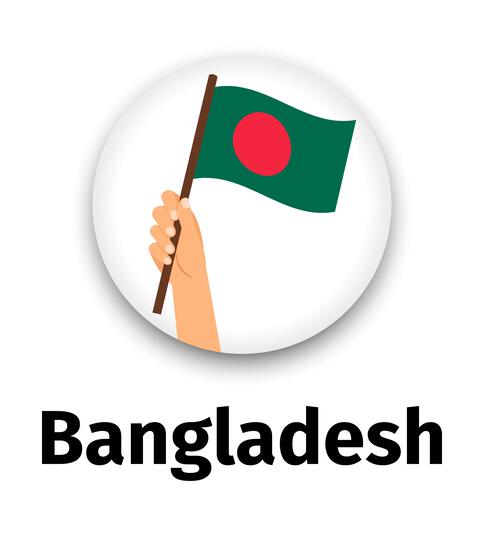Financial resources often influence Elections in Bangladesh, leading to unequal opportunities, corruption, and a lack of true representation. Additionally, the concentration of power in authoritarian structures can undermine democratic processes. To ensure free, fair, and democratic elections, a new system must be introduced that eliminates campaign expenditure, prevents authoritarian influence, and empowers all candidates to reach voters effectively.
Vision
A Bangladesh where all citizens, regardless of their background, enjoy equal rights, freedoms, and opportunities in a just and inclusive society.
Core Principles
1. Democracy
- Free and fair elections with genuine multi-party participation.
- Independent judiciary and rule of law.
- Separation of powers between the executive, legislative, and judicial branches.
- Freedom of speech, assembly, and association.
- Protection of minority rights.
2. Human Rights
- Protection of fundamental human rights for all citizens.
- Elimination of all forms of discrimination, including gender, religion, and ethnicity.
- Respect for individual dignity and autonomy.
3. Good Governance
- Transparency and accountability in government.
- Effective and efficient public services.
- Combating corruption at all levels.
- Sustainable economic development.
4. Social Justice
- Equitable distribution of resources and opportunities.
- Reduction of poverty and inequality.
- Access to quality education and healthcare for all.
- Empowerment of marginalized communities.
Key Features of the System
1. State-Funded Public Campaigning
- The Election Commission (EC) will organize and fund all election-related campaigns using state resources.
- A national election broadcasting platform will be created to provide equal exposure to all candidates, preventing state control over media favoritism.
- Government and independent media channels (BTV, Bangladesh Betar, newspapers, and digital platforms) will allocate equal time slots for candidate debates, policy discussions, and voter outreach, ensuring unbiased representation.
2. Strict Ban on Private and Coercive Campaign Financing
- Candidates and political parties will be prohibited from spending personal, corporate, or party funds on campaigning.
- Financial audits will be conducted by an independent body to monitor compliance.
- Violations will result in disqualification, legal penalties, and prohibition from future political participation.
- Measures will be taken to prevent state security forces and administrative bodies from being used to intimidate opposition candidates.
3. Digital and Media-Based Election Outreach
- A centralized, independent digital platform managed by the EC and civil society organizations will be used for virtual campaigning, candidate profiles, and policy presentations.
- Social media advertisements will be regulated and equally distributed among candidates, ensuring that no political entity monopolizes digital outreach.
4. Community-Based Voter Engagement and Protection
- Town hall meetings and debates will be organized by local election authorities where candidates can interact with voters without fear of state retaliation.
- Public debates and discussions will be broadcast live on television and social media with independent monitoring.
- Civil society and international observers will be invited to ensure election integrity and protect activists from suppression.
5. Door-to-Door Campaign Regulation and Protection from Intimidation
- Personal voter engagement will be limited to structured, EC-supervised outreach programs, preventing coercion and forced participation.
- Candidates will be allowed to meet voters only in designated public spaces under EC oversight to prevent the misuse of state power for electoral gain.
- Mechanisms will be established to report and take action against threats, violence, and intimidation by political actors.
6. Transparent and Independent Voting Process
- Voter education programs will be launched to inform the public about candidates and their policies without state or corporate influence.
- The EC will ensure fair polling processes and unbiased monitoring of elections through an independent oversight body.
- Polling stations will be monitored by civil society representatives, international observers, and independent election commissions to prevent fraudulent practices.
- Mechanisms will be implemented to safeguard the voting process from digital or physical manipulation.
Implementation Strategy
1. Strengthening Democratic Institutions
- Electoral reforms to ensure free and fair elections.
- Judicial independence and accountability.
- Empowerment of civil society organizations.
- Promotion of political pluralism and tolerance.
2. Upholding Human Rights
- Ratification and implementation of international human rights treaties.
- Protection of freedom of expression and dissent.
- Combating discrimination and hate speech.
- Ensuring the right to peaceful assembly and protest.
3. Promoting Good Governance
- Transparency and accountability in government operations.
- Access to information for citizens.
- Combating corruption through effective anti-corruption measures.
- Ensuring sustainable economic development.
4. Fostering Social Justice
- Reducing poverty and inequality through social safety nets and targeted interventions.
- Ensuring access to quality education and healthcare for all.
- Empowering women and marginalized communities.
- Promoting inclusive and sustainable development.
Implementation Mechanisms
- Multi-Stakeholder Approach: Collaboration between government, civil society, academia, and international organizations.
- Long-Term Vision: Sustainable and long-term commitment to democratic values and human rights.
- Continuous Monitoring and Evaluation: Regular assessment of progress and adaptation of strategies based on feedback and results.
Expected Outcomes
- A level playing field for all political candidates free from financial and authoritarian influence.
- Elimination of financial and coercive influence in elections.
- Greater voter engagement based on policies rather than monetary and state-sponsored dominance.
- Strengthening of democracy, human rights, and governance in Bangladesh.
- Eradication of authoritarian tendencies, ensuring free and fair democratic participation.
Conclusion
Building a "fascist-free Bangladesh" requires a collective effort to uphold democratic principles, protect human rights, and promote good governance. By working together, we can create a society where all citizens can thrive and contribute to a just and prosperous nation. By implementing an expenditure-free and fascist-free campaign system, Bangladesh can set an example of fair, transparent, and corruption-free elections, ensuring that leadership is determined by merit, public service, and democratic principles rather than financial or coercive power.





.jpg)









No comments:
Post a Comment
Please validate CAPTCHA